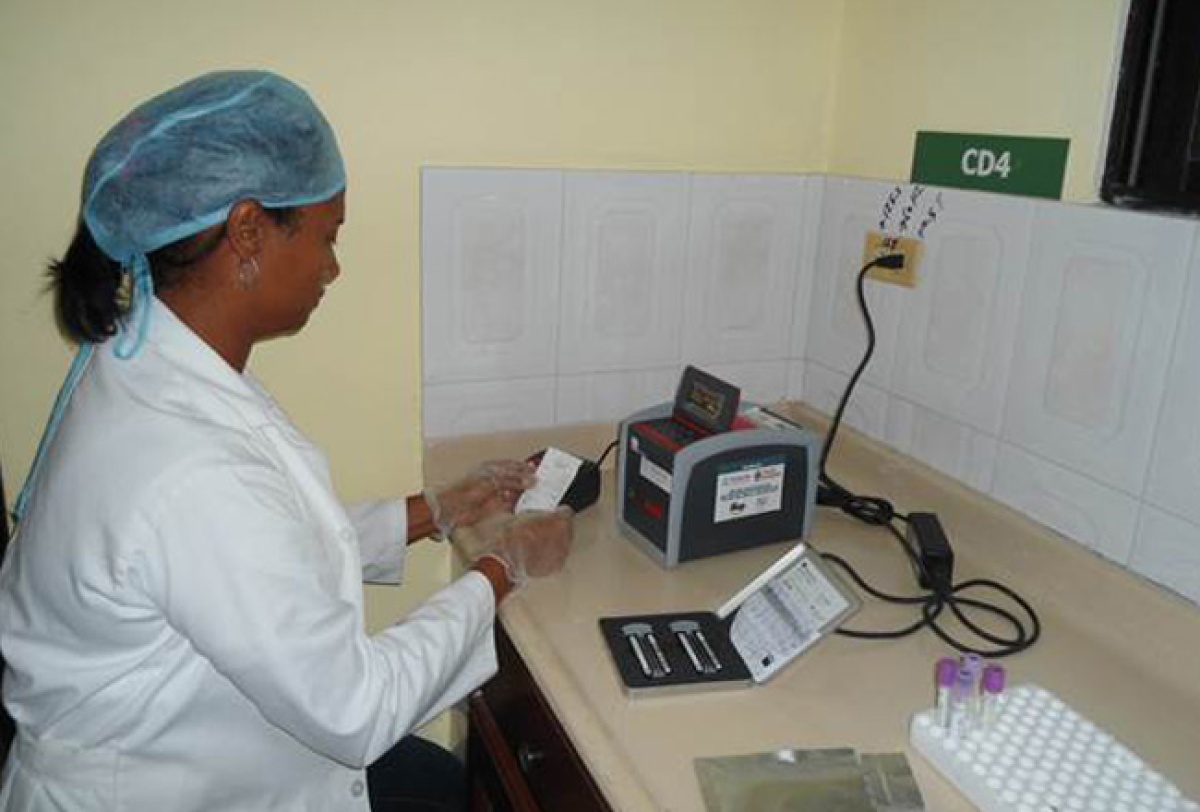Need to Know: Pima CD4 Analyzer
Posted on Sep 11, 2013

Spend a day at any Partners In Health site and there’s a good chance you’ll hear a phrase you’re unfamiliar with. Perhaps it’s a clunky acronym or polysyllabic drug name. But don’t worry: Keeping up with the ever-evolving world of global health is hard, even for insiders. In Need to Know, we cut through the complexity and deliver the most pertinent and interesting information on a single subject. Today, we fill you in on the Pima CD4 Analyzer.
What is it?
The Pima Analyzer is a mobile device about the size of a toaster that measures CD4 counts of HIV-positive patients. Also known as T-helper cells, CD4 cells are a type of white blood cell that helps our bodies fight infections. The lower a patient’s CD4 count, the weaker their immune system and more advanced their HIV.
Why is it important?
CD4 counts are used to determine when an HIV-positive patient should begin antiretroviral therapy, commonly referred to as ART. In many hard-to-reach rural areas where PIH works, determining a patient’s CD4 count can be a cumbersome process. For instance, before Socios En Salud—PIH’s sister organization in the Dominican Republic—had a Pima Analyzer, blood samples would be sent to a national lab five hours away by car. Sometimes it would take weeks for the lab to send back results. This lengthy turnaround may have delayed patients from getting on lifesaving medication. It also meant that patients had to make a second trip to the clinic to get their results, a costly and time-consuming process that not every patient was able to afford.
So how fast does Pima deliver a CD4 measurement?
Our lab technician draws a sample of blood from the patient and enters it into the Pima device on the spot. From there, it takes about 20 minutes to deliver a CD4 count.
Does such a quick turnaround actually help close the treatment gap?
Yes. A recent peer-reviewed study in Plos One notes that point-of-care testing for CD4 counts has been shown to increase the number of patients in need of antiretroviral therapy who start treatment within three months of being tested. The study also found that the availability of testing at the point of care (one goal of Pima) helped reduce the number of patients not yet needing treatment (“pre-ART”) who were lost to follow-up care.
And what happens after the CD4 count comes back?
Well, that depends. If the patient’s CD4 count is high enough, meaning that he or she is not yet eligible for antiretroviral therapy, we will continue to monitor CD4 levels, schedule a follow-up clinical appointment in six months, and provide other needed support such as food, housing, and education on how to stay healthy. In these cases, our community health workers will make home visits and check on patients to make sure there haven’t been any changes in their health requiring earlier follow-up.
But what if the patient’s CD4 count is low?
In the Dominican Republic, if a patient’s CD4 count is 350 cells/mm3 or less, he or she is immediately enrolled on antiretroviral therapy and assigned an acompañante, a community health worker who will meet with the patient on a daily basis to provide directly observed therapy, making sure the patient is taking his or her medication properly. By getting the patient on medication within hours of receiving the CD4 count, we’re closing the gap and making it easier for patients to receive timely care.
PIH/SES' work along the DR-Haiti central border is made possible with generous funding from the United States Agency for International Development.
Like what you just read? Then check out these stories:

